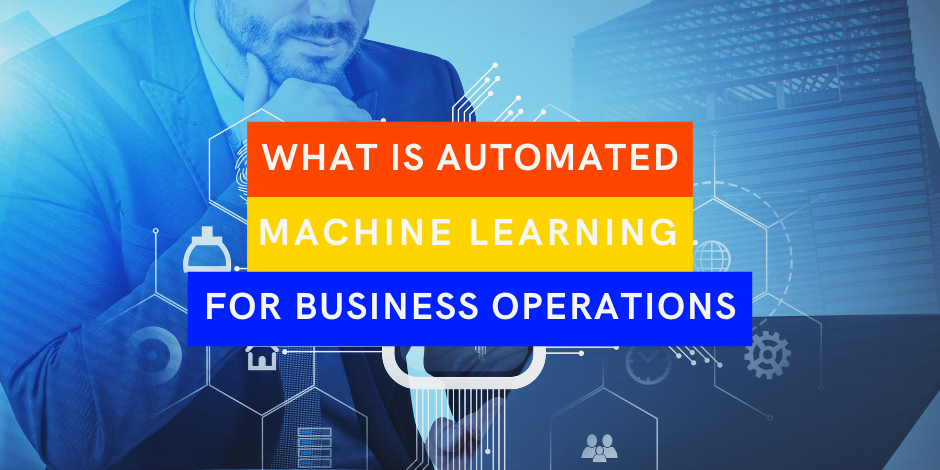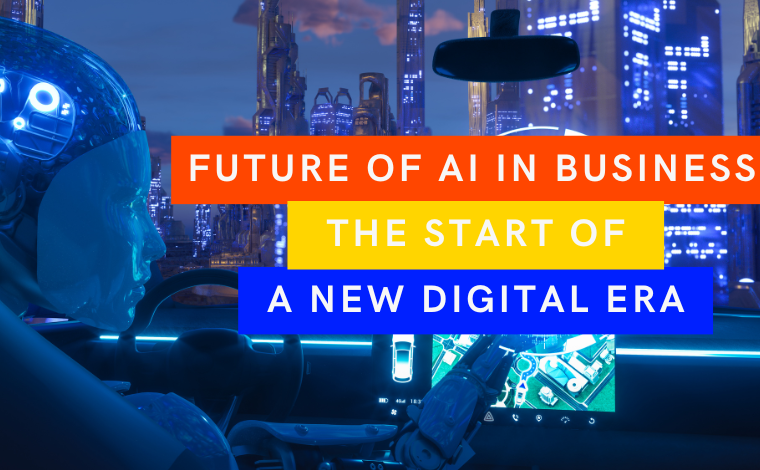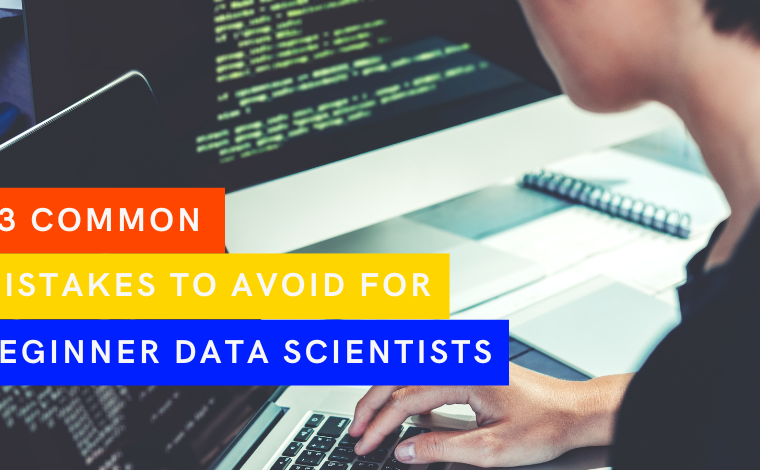What is Automated Machine Learning for Business Operations?

Stay Informed With Our Weekly Newsletter
Receive crucial updates on the ever-evolving landscape of technology and innovation.
Automated Machine Learning, or AutoML, is a compelling spin on traditional machine learning. Like most AI applications, it cuts out the heavy work of managing datasets. The best part about this system is that everyone can use it. For instance, it is used with Google Cloud to allow people from both technical and non-technical backgrounds to work through data sets, train models, and solve problems faster.
This system is meant to help with the whole picture and is even used to build advanced solutions with a more democratised and efficient approach. This helps save time for other data-related decisions, and this, in turn, helps with financial benefits and resource management.
This article will look at the topic in detail and understand why businesses worldwide use it to streamline their data-related processes. We also look at specific business operations and problems that can be improved upon and addressed with AutoML applications.
How does automated machine learning work?
Automated machine learning helps data scientists to save time by running the dataset through multiple algorithms for neural architectural search. Automating neural network design allows them to pick the best network architecture for the issue. This also reduces repetitive tasks requiring a lot of time and effort, bringing an hour’s workload down to a few minutes.
Its ease of use and potential for automation allows non-technical professionals to study machine learning data, models and applications without having to study the subject itself. In addition, the new automated models work much better with AI and business operations to provide improved results at a cheaper cost. If you want to learn about the differences between artificial intelligence and machine learning, check out our guide on the topic!
While there is no doubt that automated ML is revolutionising the field of data science and data analytics, it needs to be more powerful to replace experienced professionals altogether. As a tool, however, it is exceptional in its robust approach to complex problems.
What are the benefits of using automated machine learning for businesses?

Automated machine learning helps businesses accelerate operations with AI systems, and it helps free up working time for data specialists so they can focus on optimising other aspects of the end product or service. This is particularly helpful for firms with large datasets to analyse and optimise. You can use AutoML to go through these data sets and explore the aspects that can be optimised to improve marketing, sales, productivity, revenue and profits.
Automated ML technology leverages different systems like logical regression or decision trees to make the best algorithm choices to optimise a model correctly. This mitigates any errors that might be caused by a human employee while ensuring the architecture performs at optimal levels. It also simplifies complex concepts like deep learning and makes it easier for executive members of the company to contribute towards creating new solutions.
Improved Forecasts

Forecasting with accurate time-series models is a common responsibility for machine learning engineers. It helps organisations pick at changes in consumer behaviour and other data over a set period. However, when forecasts are only optimised with human input, the process can get quite complex, and there is always the risk of missing something or making a mistake.
These models require a lot of rebuilding, and you will have to enter the new data to update them as the changes in the target event progress. The most complex part of these models is the advanced maths used to ascertain how past events can influence future changes and behaviour. With AutoML, the model develops independently and can adapt to changing parameters and predictive changes. This automates the process of creating forecasts entirely, and developers can watch over the AutoML system as it tests and finetunes the ML models with different algorithms.
Process automation and optimisation
With AutoML and Python, it is much easier to outsource and delegate complex, time-consuming tasks to machines and get better results with less downtime. It also makes these automation systems a lot more accessible for firms that do not have the resources to hire experienced data scientists.
Automated ML optimises the hyperparameters that precede a model’s implementation and training. Without the correct hyperparameters, including the learning rate, epochs, layers, functions and units, it is unlikely that the model will be able to present an accurate result.
There are different factors and algorithms, including grid search, Bayesian search and random search, that AutoML can use to optimise the hyperparameters of the model it works on, depending on the exact tool you use.
Feature and model selection
AutoML helps optimise the process of selecting the features in your model and the model itself. Features add power and complexity to your model, and if there are more features in your model, which is common with models in more prominent firms, it is a lot more challenging to train and run that model.
Different feature selection tests run many different algorithms when you use an automated model, and this helps bring forward the ideal process for your model.
While model optimisation is slightly more complex than hyperparameter optimisations, both systems are executed similarly. Regarding model selection, the process involves picking out the model best suited for your company’s machine learning needs and the resources you have available to facilitate the new systems.
Financial Perks
Companies can use AutoML models to optimise their expenditure patterns, save on hiring costs, and increase sales with the help of the new models. These financial perks help companies to stay profitable and scale efficiently.
For new businesses, these models can almost replace a data scientist entirely, and entrepreneurs can operate and modify them without expert help.
How can companies apply automated machine learning in their systems?
Companies can utilise AutoML to understand their consumers better and increase sales while levelling up their security systems and optimising data analysis. Multiple companies are implementing these systems to help data scientists perform better and create more powerful ML models.
The best part about an automated model is that it is independent of any extra input to perform better. While this does not mean that data scientists are not required in the process, it shows that AutoML systems can operate unsupervised and still provide excellent results.
In the following sections, we will go through a few applications of AutoML for businesses in extensive detail:
Marketing purposes

As the corporate world reaches new heights with technological advancements, ensuring effective marketing to an ever-increasing customer base becomes more critical. That being said, one of the most effective digital technology methods is to gather customer data and personalise their experience.
Thanks to AutoML, businesses may use the customer data stored in CRM systems to understand their customers better and constantly learn from fresh data inputs.
This enables the system to recognise any changing patterns in consumer behaviour and develop different prediction models to target the right audience and customise their marketing accordingly, increasing the overall productivity and efficiency levels within the organisation.
Understanding consumer patterns
AutoML proves immensely useful in the corporate industry. It is essential to keep up with customer demand and ensure the primary supply stays as close to demand as possible to reduce inventory costs.
AutoML helps a business achieve close results by considering various inputs when it comes to making a good forecast of customer demand. For example, since these things significantly impact demand, the system will pick up specific data, including differences in customer geographics and current weather conditions.
To determine the likelihood of a customer churning in the future, AutoML integrates historical customer data with prior market behaviour. This aids businesses in providing personalised offers to keep consumers and keeps inventory costs minimal.
Fraud prevention and defences
Due to its ability to analyse enormous volumes of data and recognise trends, AutoML is one of the most powerful digital tools for exposing weaknesses within the company, spotting assaults in their early stages, and anticipating how future intrusions may occur.
Fraud detection is one of the key areas where AutoML can make a positive difference in the organisation’s security. The algorithms can search large data sets for anomalies pointing to illegal conduct like credit card fraud or money laundering.
Improved customer service

Businesses can better serve their customers by customising their products and services using AutoML to assess customer preferences. Furthermore, company systems can now understand and answer questions in natural language processing, thanks to AutoML and AI technology developments.
As a result, companies now have a variety of new methods to communicate with clients and inform them about their products through virtual assistants. Moreover, with the latest modern tech endeavours, chatbots may automate customer service and provide logical answers after comprehending them thoroughly.
Apart from this, AutoML is also utilised in medical research contexts to analyse vast amounts of data and generate insightful results effectively. This, in turn, allows medical institutions to create more effective products and improve customer service overall.
Conclusion
While there is certainly some discussion around what AutoML means for the future of data science and data scientists, it is essential to note that the system is not a replacement for their services and human intellect. However, it is an excellent tool that every experienced data scientist should employ to stay one step ahead of the updates and streamline their job processes.
If you want to make a career shift into Data Science & AI, the Institute of Data offers some excellent courses that give you the skills employers wish for within 3-6 months of prep. You can start your journey into tech by booking a career consultation with one of our experts here!




